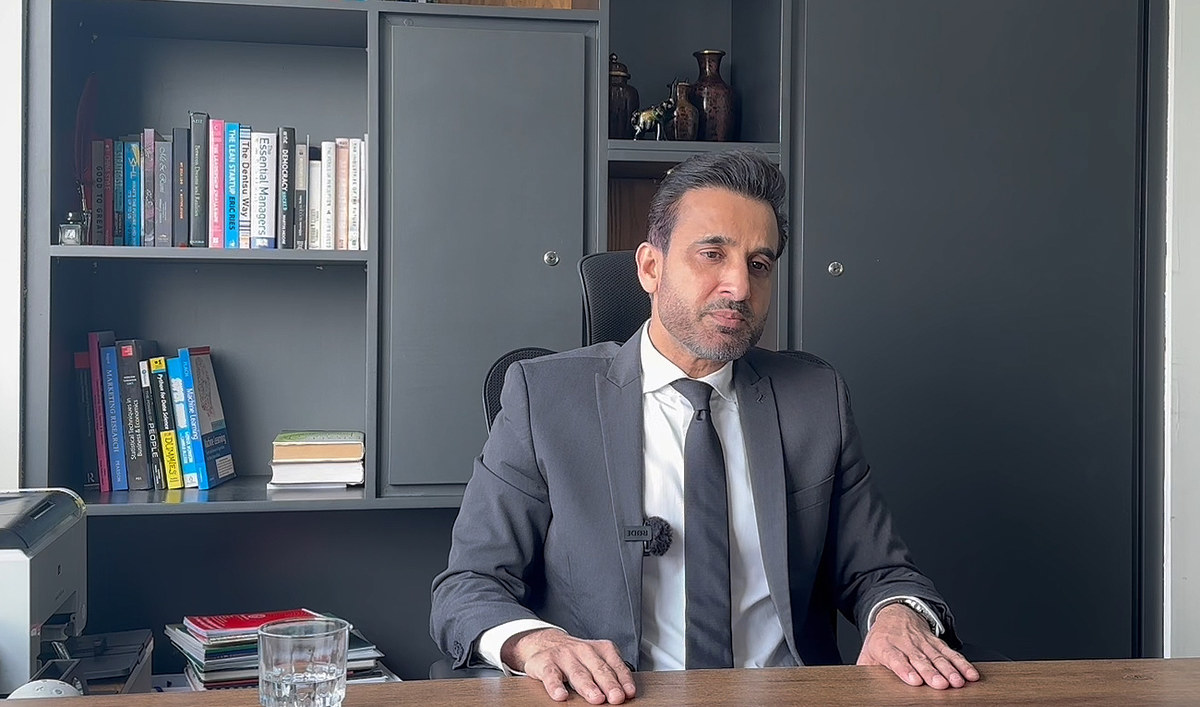ISLAMABAD: Pakistani authorities should learn from Saudi Arabia’s real estate development model to attract foreign investment in order to fulfil the country’s housing needs and boost its fragile economy, a top Pakistani estate developer said on Thursday, pointing to the South Asian nation’s $40 billion investment potential in the housing sector.
Shafiq Akbar, chief executive officer of the Imarat Group, was one of the attendees at the Cityscape Global public-private partnership forum in Riyadh this week, where he presented different investment opportunities in Pakistan’s real estate sector to woo potential investors. Since 2016, Akbar’s group has launched 15 megaprojects in most sought-after areas of Pakistan and has a portfolio of around $800 million. So far it has developed projects worth around $230 million.
Pakistan, a nation of 241 million, is facing a housing shortage of approximately ten million units, with half of them in the urban areas, according to the World Bank. The housing gap only in Punjab, the country’s largest province in terms of population, is expected to rise to 11.3 million units by 2047. Hence, the housing construction and real estate sectors are seen as vital to the overall health of the South Asian economy.
“There is a lot of inspiration and learning which we can take from Saudi Arabia [for the real estate development],” Akbar told Arab News.
“Saudi Arabia has mapped the potential within their land. All the potentials. Be it the potential of tourism, for the cultural heritage. Anything where they can package them as a mega real estate project and brand it in such a way that, you know, they go global.”

Pakistan's prominent estate developer Shafiq Akbar gestures during an interview with Arab News in Islamabad on September 14, 2023. (AN Photo)
Under Saudi Arabia’s national tourism strategy, the Kingdom wants to attract 100 million tourists by 2030 annually and the investment required for that is $1 trillion, according to Akbar. Saudi real estate projects in Neom, Qiddiya, Diriyah and Alula have been creating a hype globally.
“Why can’t we do it,” he asked. “Saudi Arabia… is 35 million people. Here we are talking about 250 million people. We got the highest per capita demand for housing in Pakistan.”
The Imarat Group CEO suggested the Pakistani authorities to introduce “economic engines” like industrial cities, tourist destinations, and health, educational and tech cities.
“We want to introduce these economic engines to different areas of Pakistan to make our human resources productive and eventually provide them with housing,” he said.
Akbar said the Imarat Group was packaging these projects under a vision and giving a plan for that: “Do proper master planning of Pakistan and then execute this plan for the next 20 to 25 years and Pakistan, I believe, can become the fastest growing economy in the world.”
He, however, lamented that foreign investment in Pakistan’s real estate sector was shrinking as only around $25 billion came to it in 2021, and half of that investment was trapped in “illegal” or “infeasible” projects. The country’s remittances from overseas Pakistanis had also gone down with the shrinking investment in the real estate sector, he added.
“Twenty-five percent of all the remittances used to be invested in real estate in Pakistan annually. Most of that investment is not coming in the real estate sector now,” Akbar said.
“We need only one and half percent area of Pakistan to provide 20 million [housing] units in next 20 to 25 years,” he said, adding it required $40 billion investment.























